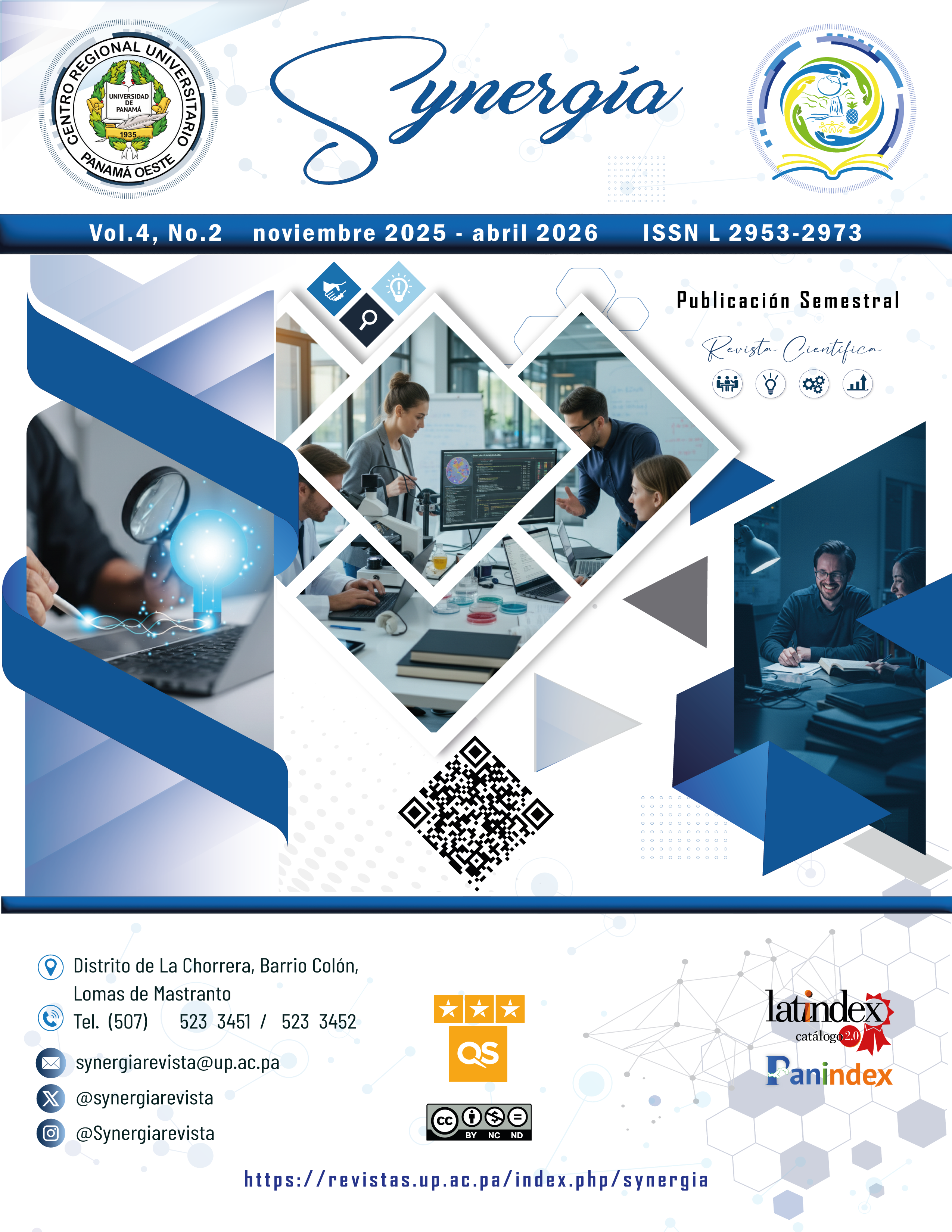

Copyright (c) 2025 Synergía

This work is licensed under a Creative Commons Attribution-NonCommercial-ShareAlike 4.0 International License.
The overall objective of this academic research was to evaluate the integration of sustainable paradigms in the formulation and production of goods and services, with a specific focus on their environmental ramifications within a resilience-oriented society. Furthermore, the role of Panamanian universities in fostering environmental awareness and instilling social responsibility among their students was highlighted. The research utilized a descriptive methodological paradigm, employing mixed methods and an inductive approach. Data was meticulously collected through an extensive literature review, observational methods, and the analysis of personal experiences, complemented by a survey of graphic design professionals, which included multiple-choice and Likert-scale questions. The methodological framework implemented was non-experimental and employed a purposive sampling strategy, distinctive within the academic environment. The results revealed a substantial deficiency in knowledge of sustainable graphic design practices. Therefore, it was concluded that there is a dichotomy between professional practices and sustainable methodologies, making it necessary to establish strategic alliances that can promote initiatives conducive to both environmental preservation and the improvement of human quality of life.